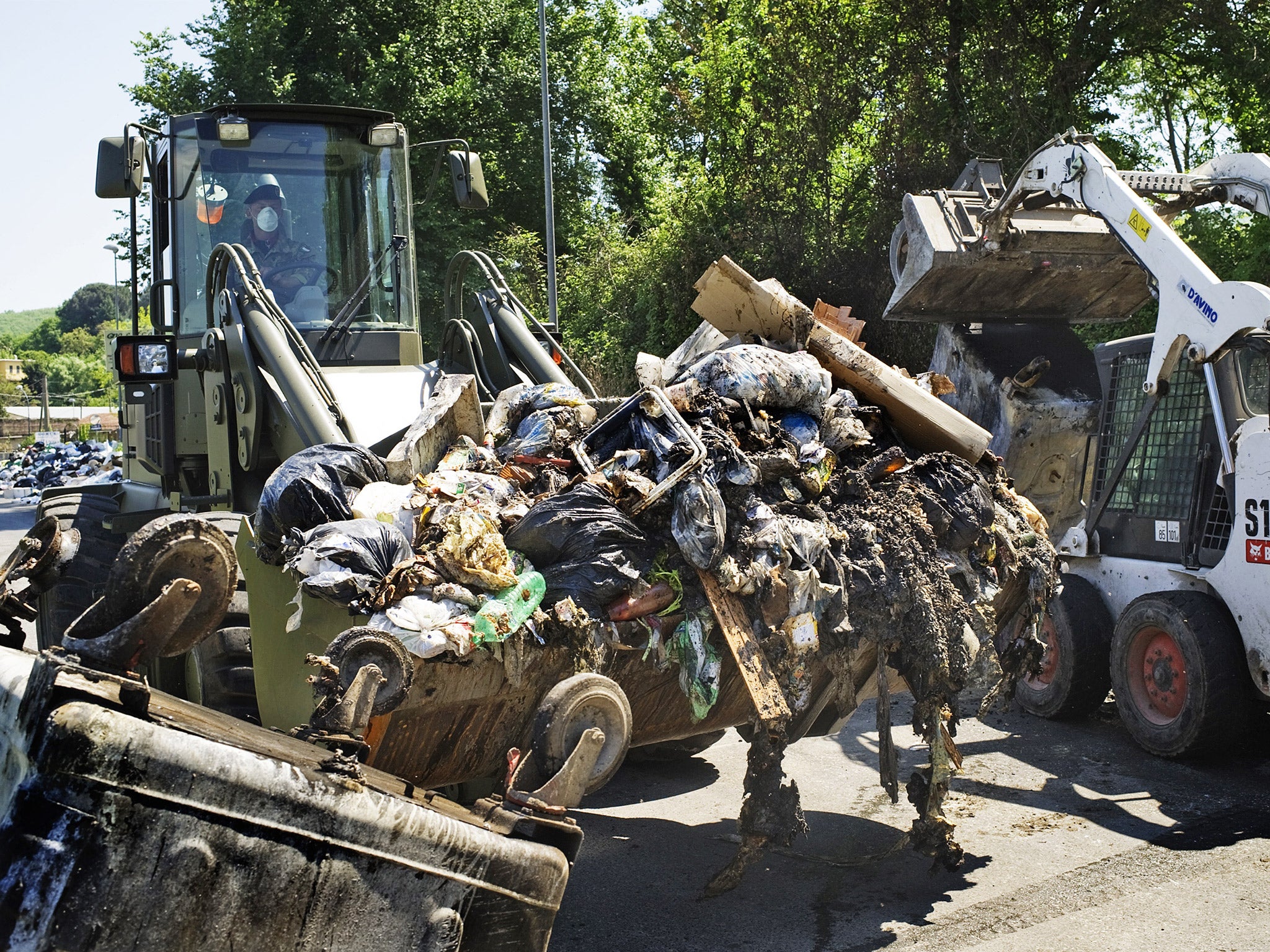Europe's largest illegal toxic dumping site discovered in southern Italy - an area with cancer rates 80% higher than national average
The vast 60 acre site bears the hallmarks of organised crime - but experts claim the Mafia alone is not responsible

Your support helps us to tell the story
From reproductive rights to climate change to Big Tech, The Independent is on the ground when the story is developing. Whether it's investigating the financials of Elon Musk's pro-Trump PAC or producing our latest documentary, 'The A Word', which shines a light on the American women fighting for reproductive rights, we know how important it is to parse out the facts from the messaging.
At such a critical moment in US history, we need reporters on the ground. Your donation allows us to keep sending journalists to speak to both sides of the story.
The Independent is trusted by Americans across the entire political spectrum. And unlike many other quality news outlets, we choose not to lock Americans out of our reporting and analysis with paywalls. We believe quality journalism should be available to everyone, paid for by those who can afford it.
Your support makes all the difference.The biggest toxic dumping site ever discovered in Europe is being investigated in the area of southern Italy plagued by cancer rates that are up to 80 per cent higher than the national average.
Police say over two million cubic metres of dangerous material, including 25kg packets of French industrial waste and containers with solvents, have been dug out up in the Calvi Risorta area north of Naples, where the Camorra crime syndicate makes hundreds of millions a year from illegal dumping.
The dump site was so big that forestry officials could only estimate its size after three days’ digging with bulldozers, Il Fatto Quotidiano newspaper reported. Sergio Costa, the regional commander of the Forestry Police, said investigators would establish to whom the products has been sold – and thus who was responsible for disposing of them.
Mr Costa said the vast dump site, covering 60 acres, bore the hallmarks of the Camorra’s Casalesi clan, made notorious by the hit book and film Gomorrah. He said the site have been formed using the clan’s “almost scientific system” in which rubbish and soil were separated in distinct but compact layers, leaving just 10cm or so of untainted soil on the surface as cover.
A spokesman for the prosecutor’s office in nearby Santa Maria Capua Vetere said ongoing tests would reveal how dangerous the waste is. But scientists say the studies have already shown the deadly effects of the illegal trade.
Research published in 2012 suggested that women in the Naples area were almost 50 per cent more likely to develop breast cancer than their compatriots. Antonio Giordano, the director of the Sbarro Institute for Cancer Research at Temple University in Philadelphia, and Giulio Tarro, a doctor at the Cotugno hospital in Naples, found cancer rates in some towns in the area were up to 80 per cent above the national average.
The Environment Minister, Gian Luca Galletti, held a special meeting with Forestry Police chiefs and Carabinieri, having ordered additional checks in the surrounding area. Digging will resume on Friday.
The environmental group Legambiente has warned that organised crime groups across southern Italy were earning €20bn a year by illegally burying heavy metals and cancer-causing organic compounds, often in agricultural areas or on land used to build homes. It said, though, that Campania, the region around Naples, was the area worst hit by Mafia-linked environmental damage. The local crime syndicate, the Camorra, is frequently blamed for exacerbating or even causing the problems – by encouraging the closure of official incineration plants – to increase demand for its illegal dumping services.
But experts said the Mafia alone was not responsible. “It’s not just the Camorra, but also institutions and civil society who have a responsibility,” said Corrado De Rosa, the author of several books on the Mafia. “Because those who have taken money from the Mafia to bury waste in their land, and those who didn’t report what was happening even though they knew about the tragedy, are also responsible.”
Many companies from the north of Italy are thought to pay Mafia clans to dispose of dangerous industrial waste.
Join our commenting forum
Join thought-provoking conversations, follow other Independent readers and see their replies
Comments